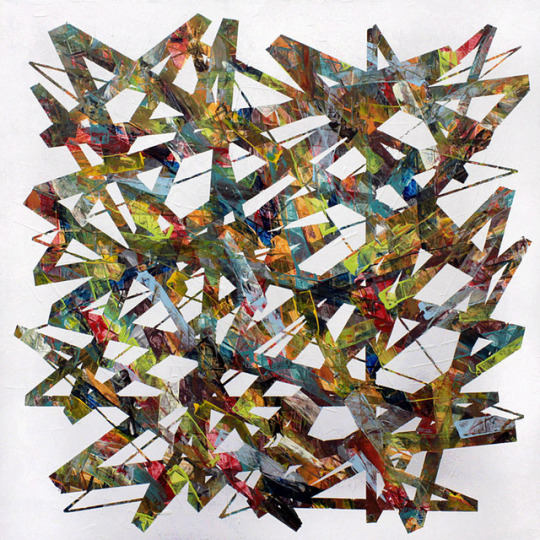HOW TO USE YOUR ARTS COUNCIL
Art councils can offer a wide range of learning opportunities that empower artists to develop their craft and sharpen their business skills.
Are you searching for artist opportunities in your community? Art councils are the perfect place to begin your search!
If you’re a visual artist, musician, performing artist, or writer, your local arts councils can introduce you to a unique professional network and build public awareness to your discipline throughout the region. Within the organization, there may be various staff roles – deputy director, grant manager, artist services, curator – each individual works diligently to establish stronger networks of support for artists.
By connecting artists with fellowship opportunities, exhibition spaces, and honing their professional development skills, art councils invest in their creative practice and day-to-day livelihood. They often work closely with various partners involved in economic development, arts education, capacity building, urban revitalization and more. Art councils ultimately provide a rich environment for artists to grow and thrive. Do you know the true value of your arts council?
Together we will breakdown the benefits and share tips on how to connect with your local institution.
Professional Development
Art councils often offer a wide-range of learning opportunities that empower artists to develop their craft and sharpen their business skills. Think of your arts council as a resource that creates opportunities for artists to learn, grow and express their creative talents. Professional development refers to the development of a person in his or her professional role. For artists this statement can vary. The daily role of any artist is inherently entrepreneurial. You may need help fostering community engagement, utilizing technology, or developing streams of revenue for your business.
The Arts Council New Orleans, for example, is committed to supporting local artists in their creative endeavors. Subsequently, they have a variety of interactive workshops and webinars available to their members. One popular online initiative, ‘Smart Money for Creatives Webinars’, covers topics such as developing efficient financial habits, marketing, and bookkeeping.
According to Megan Young, Artist Services manager, at the Arts Council New Orleans, the agency works ardently to nurture the New Orleans cultural community.
“The Arts Council New Orleans provides an active platform for artists. We share job listings, festival opportunities, professional development workshops and more. The Arts Council’s Community Arts Grants Program also provides support for a broad range of arts activities that take place in and have impact on the residents of the New Orleans Parish. Our priority is broadening the artists’ community reach and consistently share new opportunities.”
Real-Life Connections
Cristina DiChiera, Director of Artist Programs at the Rhode Island State Council on the Arts, has worked for her institution for 12 years. She contributes daily to sustaining the presence of the arts in Rhode Island. Without question, her team is a “a collective brain trust of artists and arts organizations throughout the state.” When artists have questions, they call her directly and gain access to a wealth of internal resources.
“Most arts councils have been around since the 1960s and their staffs are involved in the arts on a personal and professional level. They are repositories of the history of Arts and Culture in their state. Through our grant and fellowship programs, we have the most up-to-date demographic and contact information on artists and arts organizations statewide. Artists should use us as a resource center. Thinking about doing a new arts project in your community? Chances are, if it’s been done before, your state arts council will either remember it or have a record of it. Looking to connect with certain artists – in a specific discipline, geographic area, of a specific ethnicity, etc? Interested in finding other ways of marketing your work? Outside sources of funds? Classes in certain arts practices? Ask your state arts council.” says DiChiera.
Follow your Art Councils on Social Media
Building relationships with your arts council is a good method of expanding your professional network and learning about new opportunities. Remember, this can also be done online! By following your art council on Twitter or Facebook, you will be among the first to know when artist opportunities are announced, applications are open, or professional workshops are scheduled, along with other arts news.
Many arts councils, along with other cultural institutions, will be joining NYFA for #ArtistHotline, a monthly Artist Professional Development Day on the third Wednesday of each month starting on July 15. We will respond to questions and offer resources on topics such as, financial planning, emergency preparedness and promoting your creative practice. By using social media, you can discover ways expand your community and build rewarding long-term partnerships.
If you’d like to participate, create a free Twitter account (if you don’t already have one!), and on July 15, follow the #ArtistHotline conversation, ask questions about your practice or questions about participating organizations, and connect with other artists, using the hashtag.
You can find more details here: http://bit.ly/JoinArtistHotline.
In addition to social media, art councils offer a variety of workshops, classes & learning opportunities on-site. Seek out the opportunities, online or off, that will benefit your career and increase your professional development.
Artists’ Fellowships and Grants
Art councils recognize outstanding artists by awarding fellowships and grants in a variety of artistic disciplines. It’s one of the many ways they invest directly in artists and help sustain the creative sector in their communities.
Each council has a different set of eligibility requirements, deadlines, grant categories and review criteria when selecting artists. Fellowships and grants are highly competitive and applicants need to demonstrate exceptional talent in their field. Some opportunities may provide funding for art supplies, rehearsal space, or other uses specifically related to the development of the artist’s work.
“At the Georgia Council for the Arts, we work to promote the work of individual artists through various programs, such as the Art of Georgia, which exhibits work by local visual artists in the state capital, or the Governor’s Awards in the Arts and Humanities, which awards work by a Georgia artist to honorees annually.” says Tina Lilly, GCA’s Grants Program Manager.
Overall, fellowships and grants seek to provide artists with rewarding experiences, connections, and most importantly access to funding.
Find your Arts Council
Every state and US Territory has a state arts agency. The states are divided into six regions. Each of the regions is served by a regional arts organizations:
- Arts Midwest
- Mid-America Arts Alliance
- Mid Atlantic Arts Foundation
- New England Foundation for the Arts
- South Arts
- Western States Arts Federation
Regional arts organizations work closely together to coordinate arts initiatives nationwide. The system of regional arts organizations was established by the National Endowment for the Arts (NEA).
Arts councils provide leadership through the arts by supporting artists and strengthening communities. Discover what your art council can do for you!
– Glory Edim, Program Associate, Online Resources
Image: Pablo Carpio, Immigrant Artist Program Mentee ‘13 – Untitled, Acrylic on wood





